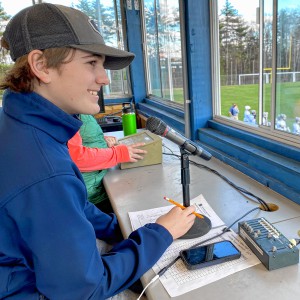Dementia hits hard, especially for the spouse
| Published: 07-17-2023 6:44 PM |
Elvis was singing at a reasonable volume, allowing others in the living room to speak comfortably.
Doug Boyd of Franklin then moved across the room, a distinguished looking gentleman with a noble past, serving the public in one form or another. His hair was soft white, swept to the side, and he had broad shoulders and a lean-yet-slender build, impressive for 74 years old.
For reasons unknown, though, Doug cranked the music to a near-intolerable level. Not ear splitting, but close.
“DON’T BE CRUEL!!” Elvis sang.
“Honey, can you turn it down, please!?” shouted Doug Boyd’s wife, Dale Boyd.
She was asked to describe her feelings, her thoughts, after watching her beloved husband lose his identity since he was diagnosed with dementia nearly six years ago.
“I had never thought that this is how my retirement years were going to look like,” Dale said. “I retired three years ago because of this. But it’s not good for him to be home alone.”
This is her life now. A 64-year-old woman providing round-the clock care for her 74-year-old husband. A former Marine whose eyes never reveal any spark of recognition when someone speaks with him.
Article continues after...
Yesterday's Most Read Articles
 Kenyon: What makes Dartmouth different?
Kenyon: What makes Dartmouth different?
 One injured in downtown Franklin shooting, police investigating
One injured in downtown Franklin shooting, police investigating
 NH Center for Justice and Equity releases policy goals to address racial disparities
NH Center for Justice and Equity releases policy goals to address racial disparities
 NHTI to treat Medicaid dental patients after $500,000 donation
NHTI to treat Medicaid dental patients after $500,000 donation
 Opinion: A veteran, father, and coach’s plea to reject homophobic laws
Opinion: A veteran, father, and coach’s plea to reject homophobic laws
 Concord High graduate leads Pro-Palestine protests at Brown Univeristy
Concord High graduate leads Pro-Palestine protests at Brown Univeristy
It was quickly apparent that Doug needs assistance. He’s childlike, easily distracted. He’ll show you items that are important to him, but it takes time for responses or questions to reach his mind, if they do at all.
Once, just a few years back, he was the guy with a Purple Heart. He was the former police chief in Belmont and Franklin and a former member of the State Police. Pictures show a handsome, sturdy man with a mustache, his hat pulled down, just above his eyes.
He was a husband and the father of four, a born leader whose philosophy demanded focus and structure, on the job and at home. Dale said Doug’s rigid ways served him well once he returned from Vietnam, where he served in 1968 and ’69.
“Regimented from day one,” Dale said. “There was always structure, and some of the people who were in the service with him, when they got home, they secluded themselves because they did not have the structure when they came back. He did, and he was able to function.”
He led a scout team of dogs in Vietnam, walking the point with them, near the shooting. There’s a photo in the Boyds’ living room, black and white, of Doug flanked by a pair of German Shepherds, his arms around them.
Dale said that Doug saved some of his dogs’ lives.
“And the dogs saved him as well,” she said.
He was a Marine, of course, a sergeant. He received a Purple Heart after taking a heavy dose of shrapnel in ’69. This week at their home in Franklin, he retreated to an area adjacent to the living room and brought back the Purple Heart he had earned for heroism.
For Doug, the medal once served as a source of great pride, a symbol of courage. It’s doubtful it means much now. And it was just a few years ago that Doug’s Purple Heart earned him a plane ticket back to Vietnam, with other medal-winning veterans.
“He had to go through a panel to be chosen to go,” Dale said. “There was such a difference in him. It’s a beautiful country, and it hit him, just the idea of how different it was from what he remembered, when things were so horrible.”
He worked at the State Prison when he returned to the states in 1969. The State Police followed in 1971, before Doug was named chief of police in Belmont and Franklin. He served in law enforcement in some capacity for more than 30 years.
He retired in 2011.
Meanwhile, Dale worked for the Department of Safety for 26 years. She’s recalled different times, wonderful times, trips to Aruba and the Dominican Republic.
“We used to sit on the beach and talk for hours,” Dale said. “Now, he will sit for five minutes, and then he’ll want to get up to do something else.”
Their annual trip to Maine, to celebrate their anniversary, is a few days away. Doug and Dale are going. But it won’t be the same.
“We used to go for a week,” Dale said. “Now, we’ll do a day or two and stay over, but his attention span is not what it used to be.”
The signs of disorientation slowly worked their way into Doug’s life, with his wife standing nearby, watching, wondering.
“Things were off,” Dale said. “He was confused about people. He did not recognize people who knew him.”
Dale, it should be noted, opened her home to the local media to discuss a deeply personal topic. Questions had no boundaries. Dale plowed through, responding with one eye on her husband. Doug’s home journeys often take him from the living room to the kitchen and back.
Their four children preferred not to comment. All, however, were on the same page.
“I think that (my children), as well as myself, felt that maybe it will help someone else understand or help them get more familiar with this,” Dale said. “We had never had any dealings with this, so maybe you try to help at least one person. Understanding that this is a condition that a former Marine can get as easily as someone who’s addicted.”
Doug’s habits are locked in. Dale said he eats fish sandwiches for breakfast, lunch and dinner. He loves to bake chocolate cookies, with a sweet tooth the size of a shot glass. In fact, Dale hides the box of unopened Devil Dogs. If not, Doug will eat the whole thing. That’s eight Devil Dogs.
He’s proud of his three leaf-blowers, on a table in the basement, and they quickly became part of his itinerary as soon as he noticed a stranger in the house.
Elsewhere, Doug still dresses himself, and Dale feels fortunate that he’s capable. Many people with dementia can not dress in the morning.
He’s also capable, with a little help from his friends, of walking and getting home. Doug hikes the hills and streets of his Franklin neighborhood, sometimes logging six miles. He’s got a cell phone in case he gets lost. Dale dials hers far more often than Doug dials his. Just out of concern.
A recent Facebook post explained Doug’s situation. Neighbors now watch out for him, beep their horns, stop to chat.
Through the confusion and heartache that emerged during the past few years, Dale and her daughter, Elizabeth, took action. Simply to know what they were up against.
They took courses on dementia at the Franklin VNA. They read about the disease, and then they read some more. More course work is on the horizon.
“You learn that not every case is the same,” Dale said.
The hard truth is, dementia can not be cured. There’s no pill or surgery to refresh memory. Yet, every once in a while, the old Marine snaps back into place, realizing that the young people trying to reach him now and then, his six grandchildren, are important in his life.
“He recognizes them,” Dale said. “But it will get worse as time goes on. It will decline, and I know that. I’m aware of that. I understand that.”


 Voice of the Pride: Merrimack Valley sophomore Nick Gelinas never misses a game
Voice of the Pride: Merrimack Valley sophomore Nick Gelinas never misses a game With less than three months left, Concord Casino hasn’t found a buyer
With less than three months left, Concord Casino hasn’t found a buyer Kearsarge Middle School drone team headed to West Virginia competition
Kearsarge Middle School drone team headed to West Virginia competition Phenix Hall, Christ the King food pantry, rail trail on Concord planning board’s agenda
Phenix Hall, Christ the King food pantry, rail trail on Concord planning board’s agenda
